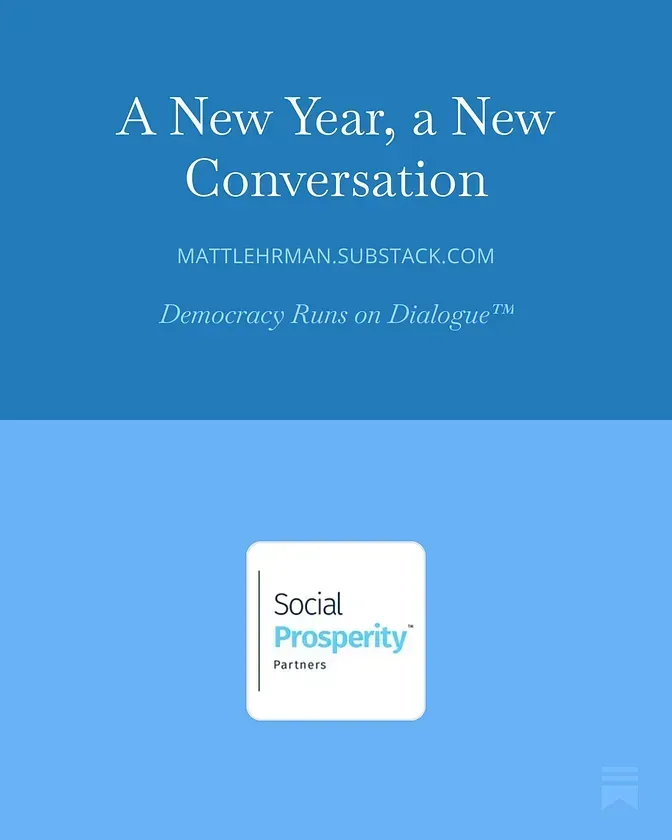To chart a path forward, ask this question
By Matt Lehrman
Social Prosperity Partners
At Social Prosperity Partners, we challenge our clients to slow down and open up. We facilitate courageous conversations that help people feel connected, respected and heard. And all of those conversations begin with the same question:
“What is sacred?”
This is not a religious or spiritual question, but rather an invitation to recognize and respect the history behind the moment. In the strategic planning process, asking “What is sacred?” is the essential starting place because it challenges stakeholders to clarify what they most want to carry forward into the future.
Before you can get someone to agree to change, you have to understand what they most cherish that needs to stay the same.
This is the key to any negotiation or group decision-making, really. You have to establish what’s non-negotiable, whether you’re a diplomat brokering a peace treaty or a wedding planner choosing the caterer. (Vegan or vegetarian options? Kosher or halal? Any future in-laws with rare food allergies?)
Strategic planning is building a map to the future. Whether the stakes are epic or ordinary, asking “What is sacred?” gives the map its compass. Recognizing and agreeing to protect one another’s “sacreds” is the foundation of trust. This is what makes collaboration and compromise possible, empowering people to chart a path forward, step by step, toward shared goals and aspirations.
Does the Constitution have anything to say about community values?
Connect with Matt:
- Email me at Matt@SocialProsperity.us.
- Follow me on Facebook, Instagram and LinkedIn.
- Learn more at SocialProsperity.us and MattLehrman.com.



